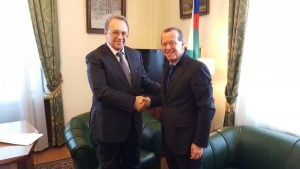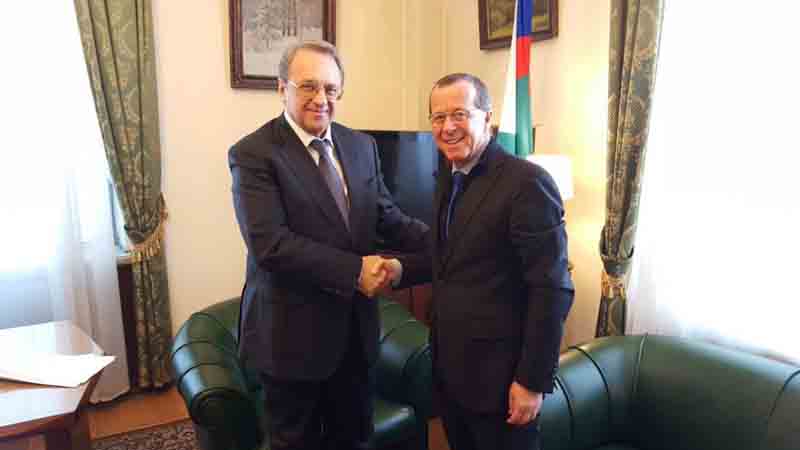By Alessandra Bocchi.

Tunis, 6 February 2017:
In a bid to firm up Russian support for the Libyan Political Agreement and ensure coordination with international efforts to secure a peaceful settlement in the country, UN special envoy to Libya Martin Kobler has been in Moscow for talks with Russian Deputy Foreign Minister Mikhail Bogdanov.
Kobler was last in Moscow in May 2016 when he tried to persuade it to accept working with the GNA ahead of it being endorsed by the House of Representatives (HoR). It still refuses to do so.
Today’s visit comes amid increasing speculation that Russia has opted to back Field Marshal Khalifa Hafter and the House of Representatives (HoR) and provide them with political and military support.
Moscow, however, rejects the allegation, stressing that it too is engaged in efforts to resolve the Libya crisis, and as such maintains a balance between Hafter and the HoR on one side and the Presidency Council (PC) on the other. It says that it continues to support the LPA and the Presidency Council, but will not recognise the government of national accord (GNA) until there is approval from the HoR.
To that end, while there have been visits by both Hafter and HoR President Ageela Saleh in the past three months, it has now also invited PC head Faiez Serraj for talks later this month.
Nonetheless, Russia is seen as having leverage with Hafter and Ageela Saleh. In an interview broadcast in France yesterday, Hafter said that links with Moscow were strong and that there was hope that the Russians would lift the arms embargo.
Aware of Russia’s influence with the east, Kobler was cited on Russian new agency Sputnik following his last Moscow visit saying how he “really appreciated the constructive line of the Russian government…”, adding that Russia’s position in the UN Security Council was essential in bringing the two parts of the country together. Kobler also noted how Russia’s good relations with eastern Libya gave Moscow unique leverage.







